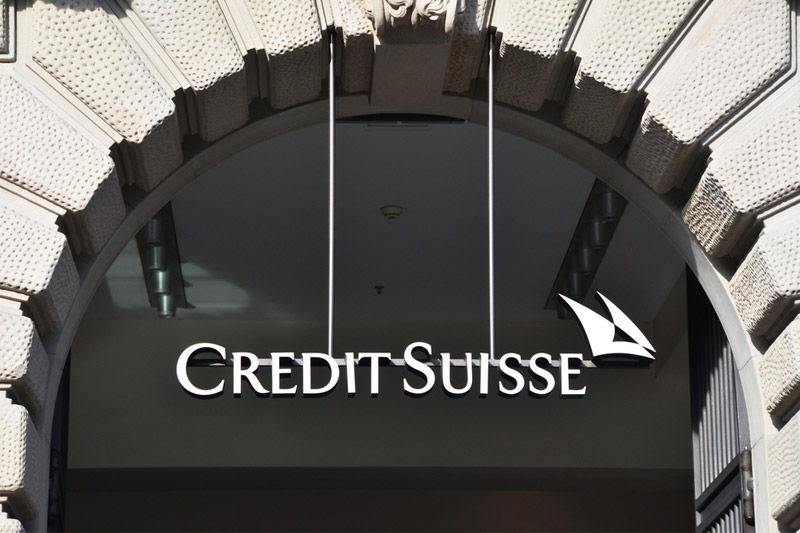By Yasin Ebrahim
Investing.com -- The Swiss National Bank on Wednesday pledged support for Credit Suisse, easing some concern about the struggling Swiss banking giant and said there was no risk of contagion in the Swiss banking system.
The Swiss National Bank said it would “provide liquidity to the globally active bank if necessary,” and downplayed concerns about the bank’s liquidity.
The Financial Market Supervisory Authority, or FINMA, confirmed that Credit Suisse “meets the higher capital and liquidity requirements applicable to systemically important banks,” SNB said.
Credit Suisse Group (NYSE:CS) fell 24% on Wednesday after its biggest shareholder, Saudi National Bank said it wouldn’t be able to provide further financial support, citing regulatory restrictions.
The Swiss central bank downplayed the recent concerns about the bank, saying that systemically important banks such as Credit Suisse have to bear more stringent capital and liquidity requirements that allow “all negative effects of major crises and shocks to be absorbed.”
The dramatic selloff in Credit Suisse that has seen losses for the year stretching to about 40% and the ongoing worries about a potential banking crisis in the U.S. had many concerned about contagion in the Swiss banking system.
But the SNB said there wasn’t any sign of a “direct contagion” for Swiss banks amid the ongoing turmoil in the U.S. banking market.
The turmoil in Credit Suisse added to growing concerns about a widespread banking crisis at a time when some U.S. banks are also in the spotlight.
First Republic Bank (NYSE:FRC) fell more than 16% after S&P Global, a credit rating agency, downgraded the bank’s creditworthiness to BB+, or “junk” status, from A-, amid concerns that depositors may pull their money.
Worries about a deepening banking crisis come even as the Fed stepped in to rescue the Silicon Valley Bank and Signature Bank, while also launching a new lending facility to prevent further runs in banks.
Still, that hasn’t stemmed the crisis of confidence in the banking sector, pushing the odds of the no-rate hike higher to nearly 60% from 20% a day earlier, according to Investing.com’s Fed Rate Monitor Tool.
The calls for the Fed to pause were further strengthened following economic data showing cooling wholesale inflation and signs of weakness in the consumer as retail sales unexpectedly slowed.
Retail sales are expected to slow further in coming months, Morgan Stanley says, as the emergency allotments benefits expired in March, the “labor market continues to cool, and households become more cautious spenders, drawing down less and less on their excess savings…”
Energy stocks, down more than 3%, were also a big drag on the broader market as investors fear the impact of a potential banking crisis on global growth, and energy demand.
APA Corporation (NASDAQ:APA), Baker Hughes Co (NASDAQ:BKR), ConocoPhillips (NYSE:COP) were among the biggest decliners.
Tech, meanwhile, was flat as lower Treasury yields pushed big tech stocks higher, and helped offset a dip in semiconductor stocks.
Google-parent Alphabet (NASDAQ:GOOGL), Apple (NASDAQ:AAPL), Facebook (NASDAQ:FB) Amazon.com (NASDAQ:AMZN) and Microsoft (NASDAQ:MSFT), traded well above their session lows.
The market selloff has pushed stocks into oversold territory, setting up the potential for a rebound, Janney Montgomery Scott said, adding that the overall bottoming cycle remains intact.
“The overall basing/bottoming cycle remains intact in our view, but the ride may get bumpier before it gets better. Markets remain oversold and coiled for potential mean reversion rallies ahead- we’re just waiting on something to trigger a more notable reversal ahead.”
